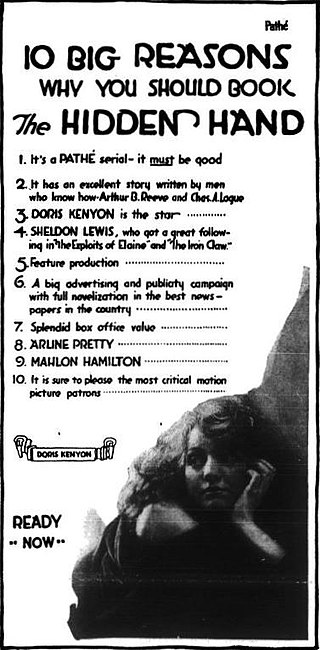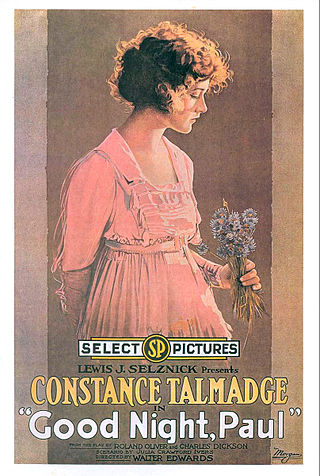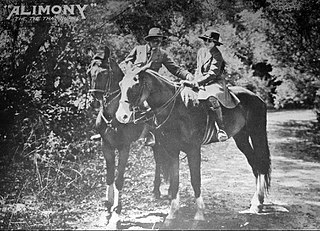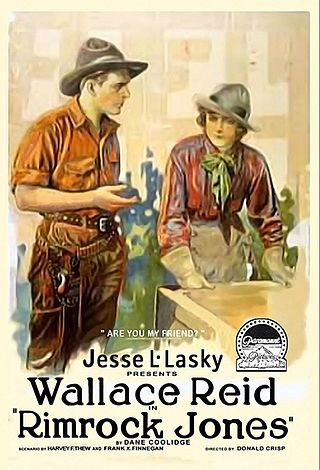Related Research Articles
The National Legion of Decency, also known as the Catholic Legion of Decency, was a Catholic group founded in 1934 by Archbishop of Cincinnati, John T. McNicholas, as an organization dedicated to identifying objectionable content in motion pictures on behalf of Catholic audiences. Members were asked to pledge to patronize only those motion pictures which did not "offend decency and Christian morality". The concept soon gained support from other churches.
In Canada, appeals by the judiciary to community standards and the public interest are the ultimate determinants of which forms of expression may legally be published, broadcast, or otherwise publicly disseminated. Other public organisations with the authority to censor include some tribunals and courts under provincial human rights laws, and the Canadian Radio-television and Telecommunications Commission, along with self-policing associations of private corporations such as the Canadian Association of Broadcasters and the Canadian Broadcast Standards Council.
Joseph Burstyn, Inc. v. Wilson, 343 U.S. 495 (1952), also referred to as the Miracle Decision, was a landmark decision by the United States Supreme Court that largely marked the decline of motion picture censorship in the United States. It determined that provisions of the New York Education Law that had allowed a censor to forbid the commercial showing of a motion picture film that the censor deemed "sacrilegious" were a "restraint on freedom of speech" and thereby a violation of the First Amendment.

Nan of Music Mountain is a 1917 American silent drama film directed by George Melford and Cecil B. DeMille. The film is based on Frank H. Spearman's novel of the same name and stars Wallace Reid and Anna Little.

The Hidden Hand is a 1917 American film serial directed by James Vincent. This is a lost serial.

The Seven Pearls is a 1917 American silent action film serial directed by Louis J. Gasnier and Donald MacKenzie. Fragments are held by the Library of Congress.

The Legion of Death is a 1918 American silent drama film directed by Tod Browning, and released by Metro Pictures Corporation.

Good Night, Paul is a 1918 American silent comedy romance film directed by Walter Edwards. It was based on a successful stage play with book and lyrics by Roland Oliver and Charles Dickson and music by Harry B. Olsen. The film was produced by Lewis J. Selznick's Select Pictures Corporation.
Freedman v. Maryland, 380 U.S. 51 (1965), was a United States Supreme Court case that ended government-operated rating boards with a decision that a rating board could only approve a film and had no power to ban a film. The ruling also concluded that a rating board must either approve a film within a reasonable time, or go to court to stop a film from being shown in theatres. Other court cases determined that television stations are federally licensed, so local rating boards have no jurisdiction over films shown on television. When the movie industry set up its own rating system—the Motion Picture Association of America—most state and local boards ceased operating.

Her Decision is a 1918 American silent drama film directed by Jack Conway and starring Gloria Swanson. It is not known whether the film currently survives, and it may be a lost film.

Film censorship in the United States was a frequent feature of the industry almost from the beginning of the U.S. motion picture industry until the end of strong self-regulation in 1966. Court rulings in the 1950s and 1960s severely constrained government censorship, though statewide regulation lasted until at least the 1980s.

Huck and Tom is a surviving American comedy-drama film directed by William Desmond Taylor and released in 1918. The scenario by Julia Crawford Ivers is derived from Mark Twain's novels The Adventures of Tom Sawyer (1876) and The Adventures of Huckleberry Finn (1884). Robert Gordon and Jack Pickford reprise the title roles from the 1917 version of Tom Sawyer, a successful adaptation that was also directed by Taylor.
The Bride's Awakening is a 1918 American silent drama film released by Universal Pictures and produced by their Bluebird production unit. Robert Z. Leonard directed the film and his then-wife Mae Murray was the star. A print of the film is housed at the EYE Institute Nederlands.

War Brides is a lost 1916 American silent war drama film directed by Herbert Brenon and starring Alla Nazimova. The film marked Nazimova's debut in motion pictures.

Alimony is a lost 1917 American silent drama film directed by Emmett J. Flynn and starring Lois Wilson. An unknown Rudolph Valentino has a role as a supporting player.

Rimrock Jones is a lost 1918 American silent Western film directed by Donald Crisp and starring Wallace Reid.

The World for Sale is a 1918 American silent drama film directed by J. Stuart Blackton and starring Conway Tearle, Ann Little, W.W. Bitner, Norbert Wicki, Crazy Thunder, and E.L. Fernandez. It is based on the 1916 novel The World For Sale by Gilbert Parker. The film was released on January 21, 1918, by Paramount Pictures. It is not known whether the film currently survives, and it may be a lost film.

Just a Woman is a lost 1918 American silent drama film directed by Julius Steger based on a Broadway play, Just a Woman, by Eugene Walter. The film starred Charlotte Walker, then wife of playwright Walter.

The Pride of New York is a lost 1917 American silent war drama film directed by Raoul Walsh and starring his brother George Walsh. It was produced by and distributed through the Fox Film Corporation.
Holmby Productions, Inc. v. Vaughn, 177 Kan. 728 (1955), 282 P.2d 412, is a Kansas Supreme Court case in which the Kansas State Board of Review, the state censorship board, and the attorney defendants appealed the decision of the District Court of Wyandotte County. It was found that the law that allowed the board to deny a request for a permit allowing United Artists to show the motion picture The Moon is Blue in Kansas theaters was unconstitutional, and an injunction was issued prohibiting the defendants from stopping the exhibition of the film in Kansas.
References
- 1 2 "Maryland State Board of Censors." Maryland State Archives.
- 1 2 3 4 Franklin, Ben A. (June 29, 1981). "Last State Board of Censors Fades Away After 65 Years" . The New York Times . p. A13. Retrieved December 15, 2016.
- 1 2 "War Brides Banned By Maryland Court". Exhibitors Herald. 6 (25). New York City: Exhibitors Herald Company: 16. June 15, 1918.
- ↑ Wittern-Keller, Laura (2015). "The Censors Who Wouldn't Quit: the Slow Demise of the Maryland Board of Censors". Maryland Historical Magazine. 110 (3): 371–399.
- ↑ "The Grandmother Who Fought Porn: Mary Avara". Maryland Center for History and Culture. April 24, 2014. Retrieved November 3, 2023.
- ↑ "Sickies Making Films". The Video Project. Retrieved July 24, 2022.